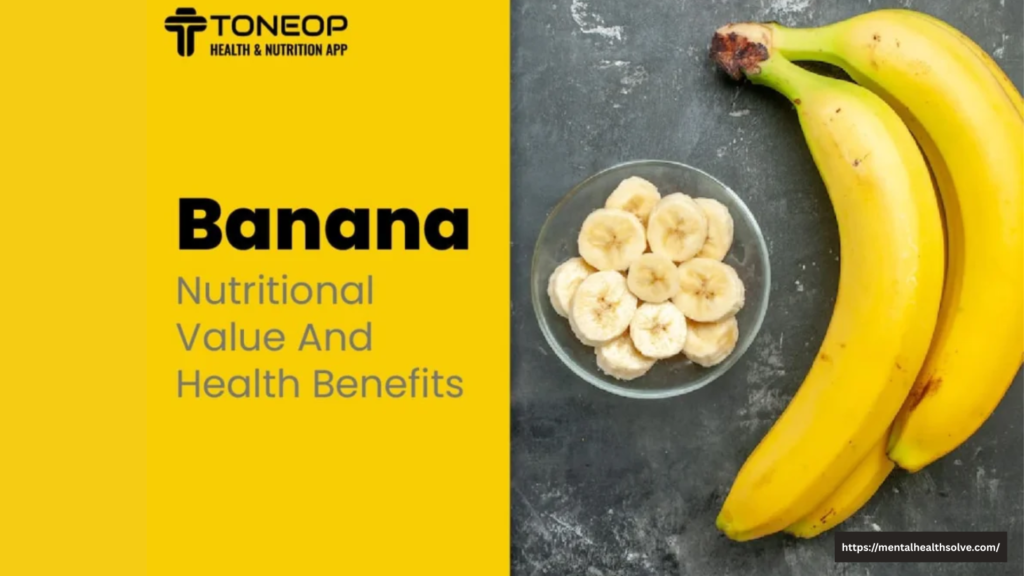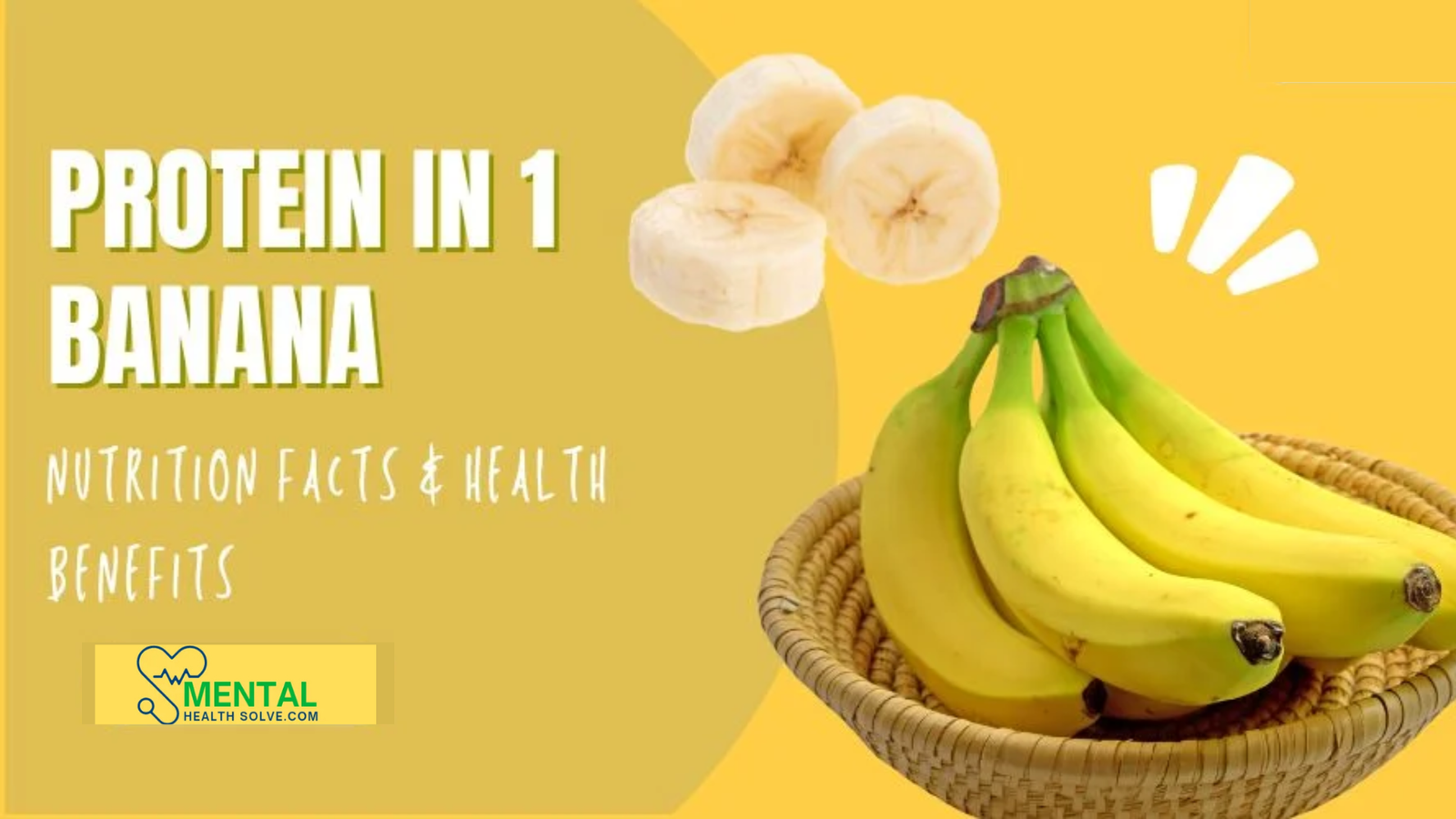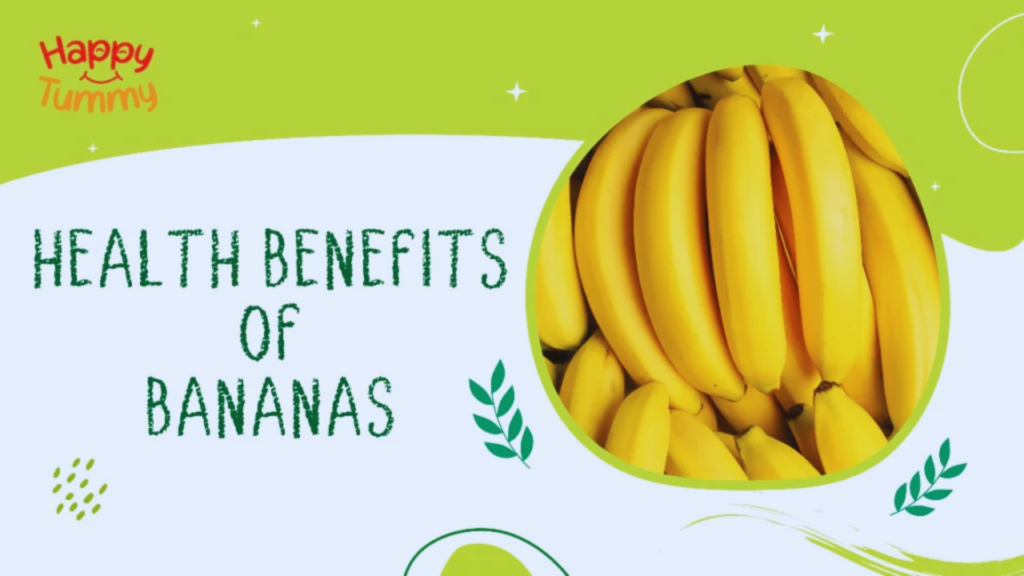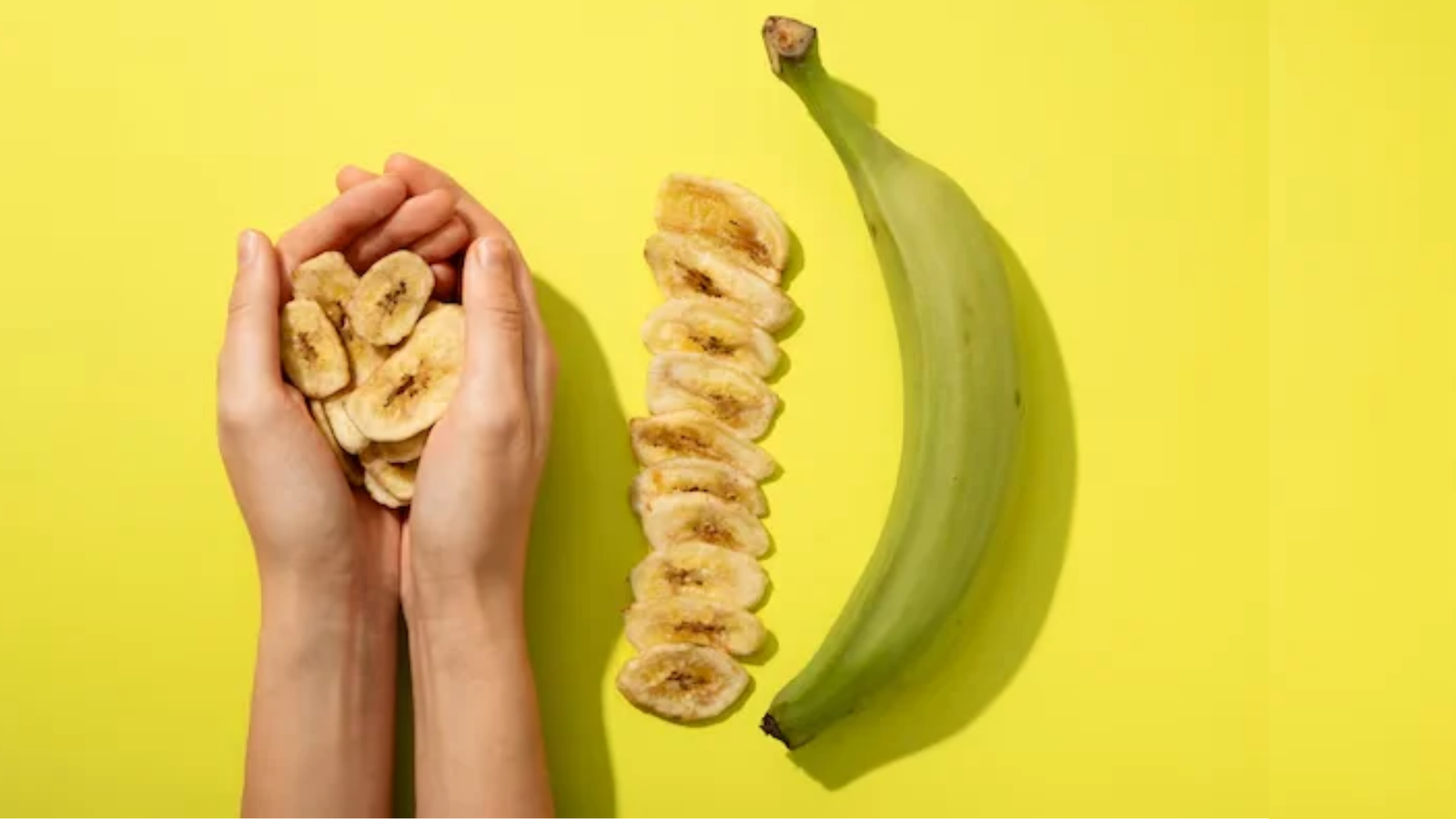
You can find fresh bananas at any grocery store and at all continental breakfasts, and they are a popular choice for pre- and post-exercise snacks. But are they a healthy option? These yellow fruits are primarily composed of complex carbohydrates, including resistant starch, which supports digestive health.
The potassium and vitamins in bananas benefit your blood pressure and overall well-being. Bananas belong to the Musa plant, native to Southeast Asia, and are cultivated in many warm regions worldwide.
They come in various types and sizes. Bananas typically range in color from yellow to green, though some varieties are red. This article will take a look at the banana nutrition facts.
Banana Nutrition Facts

A medium banana, weighing about 100 grams, packs 89 calories. It offers 22.8 grams of carbs, 12.2 grams of natural sugars, and 1.09 grams of protein. Bananas shine as a top source of potassium, delivering 358 milligrams per serving. As per USDA, the nutritional value of bananas is:
- Calories: 89
- Sugar: 12.2 grams
- Water: 75%
- Fiber: 2.6 grams
- Sodium: 1 milligram
- Protein: 1.09 grams
- Carbohydrates: 22.8 grams
- Potassium: 358 milligrams
- Magnesium: 27 milligrams
- Fat: 0.3 grams
- Vitamin C: 8.7 milligrams
Carbohydrates
The banana nutrition includes carbohydrates, primarily in the form of starch in their unripe state and sugars when they ripen. As bananas ripen, their carbohydrate composition shifts significantly. In green bananas, starch is the dominant component, making up as much as 80% of their dry weight.
As bananas ripen, this starch transforms into sugars, dropping to less than 1% in fully ripe bananas. The sugars most commonly found in ripe bananas are glucose, sucrose, and fructose. In ripe bananas, sugars can make up over 16% of their fresh weight.
Bananas have a glycemic index (GI) that ranges from 48 to 54. This index measures how fast the carbohydrates in bananas can enter the bloodstream and increase blood sugar levels. The low GI of bananas is due to their high levels of fiber and resistant starch.
Fibers
Unripe bananas contain a high amount of resistant starch, which moves through your digestive system without being broken down. In the large intestine of your body, this starch is fermented by bacteria, producing butyrate, which is a short-chain fatty acid that benefits gut health.
Bananas also provide other kinds of fiber, like pectin. A portion of the pectin found in bananas is water-soluble. As bananas ripen, the amount of water-soluble pectin boosts, causing bananas to soften as they age. Both resistant starch and pectin help regulate blood sugar levels after eating.
Calories
A medium banana weighing 100 grams provides 105 calories. How does a banana’s calorie count compare to other fruits? A gala apple of 100 grams has around 61 calories, while a navel orange contains about 52 calories. Meanwhile, 100 grams of red, seedless grapes offer 86 calories.
Fats
Bananas are very low in fat, containing around 0.1 grams per 100 grams of fruit. Since bananas have small quantities of the fat-soluble vitamins K and A, eating them with a bit of fat can enhance the absorption of these nutrients.
Potassium
Bananas are packed with potassium. It is a mineral that plays a crucial role in maintaining fluid balance in the body and regulating the movement of waste products and nutrients in and out of cells. Potassium plays a vital role in helping muscles contract and enabling nerve cells to function properly.
It also supports a regular heartbeat and can help mitigate sodium’s impact on blood pressure. Potassium might help lower the risk of developing kidney stones as we get older. Healthy kidneys, in turn, ensure that the body maintains the correct potassium levels.
A 100-gram banana offers 358 milligrams of potassium, making it an excellent dietary source. It’s ideal to obtain potassium from fruits like bananas, but potassium supplements are also available to buy online.
Magnesium
This mineral plays a key role in managing blood sugar levels and blood pressure while strengthening your bones. It also supports muscles and nerve function and improves your immune system. A 100-gram banana contains 27 milligrams of magnesium, which is 8% of your daily requirement.
Vitamins
Bananas are rich in various vitamins, including:
Vitamin B6: A medium banana provides roughly 25% of your daily vitamin B6 needs. This vitamin aids in metabolism. It is crucial for brain development during infancy and pregnancy, as well as for maintaining a healthy immune system. Vitamin B6 can also enhance sleep quality, potentially assist with weight loss, and boost brain health.
Vitamin C: You need to aim for 75-90 milligrams of vitamin C each day. A 100 gram of banana contains 8.7 milligrams of vitamin C, which can help you get there. Vitamin C shields your body from damage caused by dangerous molecules known as free radicals. These molecules develop in response to the foods we consume, as well as exposure to pesticides, cigarette smoke, and other potentially dangerous things.
Vitamin A: A 100-gram banana contains 3 micrograms of vitamin A. This vitamin benefits your eyesight and may offer protection against cancer.
Other Plant Compounds
Fruits and vegetables are rich in various bioactive plant compounds, and bananas are no different.
Dopamine: Dopamine is a crucial neurotransmitter in the brain, but the dopamine found in bananas can’t pass through the blood-brain barrier to influence your mood. Instead, it serves as an antioxidant, offering its benefits in a different way.
Catechin: Bananas are rich in antioxidant flavonoids, with catechins being the most prominent. These compounds are associated with numerous health perks, such as lowering the risk of heart disease.
Banana Nutrition: Benefits of Eating It

When you are thinking about banana nutrition, you may want to know the benefits of eating it. Bananas have numerous health benefits. These include:
Digestive Health
Bananas are full of fiber and water, which help keep your digestion regular and support a healthy gut. A single medium banana can meet about 10% of your daily fiber needs. A 2012 research found that high-fiber foods might cause stomach cramps, bloating, and gas in individuals with inflammatory bowel disease.
Despite this, the study’s authors noted that bananas might actually ease these symptoms. Green, unripe bananas are rich in pectin and resistant starch, and both are forms of dietary fiber. These fibers act as prebiotics, nurturing the growth of beneficial bacteria in your gut.
Heart Health
Heart disease is the leading cause of early death worldwide. Bananas are rich in potassium, a mineral that supports heart health and helps maintain normal blood pressure. A medium banana provides about 0.4 grams of potassium.
A comprehensive analysis of multiple studies found that consuming 1.64 grams of potassium daily is associated with a 21% reduced risk of heart stroke. Furthermore, bananas are packed with antioxidant flavonoids, which are also connected to a significant reduction in heart disease risk.
Cancer
Laboratory studies have indicated that lectin, a protein found in bananas, might help stop the growth of leukemia cells. Lectin functions as an antioxidant, which helps the body eliminate free radicals. An excess of free radicals can lead to cell damage and potentially cancer.
In 2004, researchers observed that children who ate bananas, drank orange juice, or both seemed to have a reduced risk of developing leukemia. The researchers suggested that this might be because of the vitamin C content, which also has antioxidant effects.
Final Words on Banana Nutrition

Bananas are a famous fruit, packed with vital nutrients that contribute to maintaining good health. Mainly made up of carbohydrates, they offer a good dose of antioxidants, vitamins, and minerals. Important nutrients of bananas include resistant starch, potassium, catechin, and vitamin C.
It’s important to remember that while bananas can prevent diseases and improve health, their effects may vary from person to person. Nonetheless, a diet rich in fresh vegetables and fruits will deliver a variety of essential nutrients to help maintain overall wellness. Hopefully, you now know all the important facts about banana nutrition.
